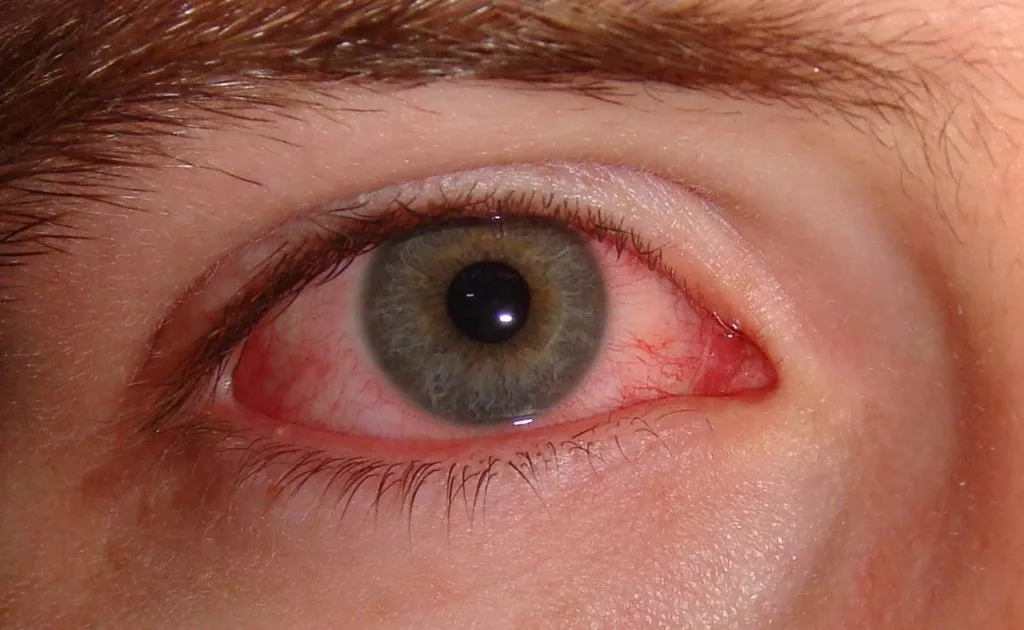Is pollution causing itchy eyes ? Read more to know how to protect them.

Is pollution causing itchy eyes ? Read more to know how to protect them.
November 11, 2023
Pune: Are you experiencing discomfort in your eyes lately, such as itching, watering, or a burning sensation? Unfortunately, air pollution and smog can contribute to these common eye conditions. In areas with high pollution levels, like Delhi-NCR, ocular health is especially at risk.
Exposure to pollutants like carbon monoxide, nitrogen dioxide, and dust particles can exacerbate visual issues and lead to eye allergies. To protect your eyes, consider wearing protective eyewear and consuming a diet rich in fibre, vitamins and other essential nutrients. Staying hydrated by drinking plenty of water can also help mitigate the harmful effects of pollution.
Recent research indicates that air pollution is not only an irritant but also a significant threat to ocular health. The cornea and conjunctiva are directly exposed to the environment, making them highly susceptible to the fine and ultrafine particles present in urban smog, particularly PM2.5. These particles can penetrate the ocular surface, leading to oxidative stress and inflammation, which can result in conditions such as dry eye syndrome, conjunctivitis etc.
As per the information, exposure to highly polluted smog can have adverse effects on our eyes, resulting in allergies and damage. The air quality is often compromised by harmful gases such as carbon monoxide, nitrogen dioxide and coarse dust particles, which can cause redness, watering, and various eye allergies. Air pollution and smog can lead to common eye conditions such as swelling, itching, burning, discomfort, soreness, redness, dryness (accompanied by a gritty feeling or foreign body sensation), and eye allergies (characterized by itching, redness, discharge, eyelid swelling, blurred vision, and increased risk of infection).
We should take proactive measures to safeguard our eyes from the harmful effects of pollution. Wearing glasses or goggles acts as a protective barrier against direct exposure, while utilizing high-quality air purifiers significantly reduces indoor pollution levels. Additionally, maintaining regular eye care practices such as using preservative-free preparations for cleansing and consuming a diet rich in vitamins and minerals essential for eye health is crucial.
It is essential to remain vigilant during periods of high pollution and schedule more frequent check-ups to detect and address any subtle signs of pollution-induced eye health decline. By adopting this comprehensive approach to eye care, you can effectively mitigate the detrimental impact of air pollution on your eyes.
During periods of increased pollution, it is crucial to take necessary precautions such as:
- Wearing well-fitting eyewear can act as a physical barrier against harmful particles while using indoor air filters can minimize exposure.
- Using artificial tears or lubricating eye drops can alleviate irritation and aid in removing foreign substances.
- Including eye-friendly nutrients in your diet, such as antioxidants like lutein and zeaxanthin, as well as omega-3 fatty acids, can help counter the negative effects of oxidative stress.
- Regular eye check-ups become even more essential during these times to detect and treat any potential issues early on, ensuring the long-term health and well-being of your vision.
- To minimize your exposure to harmful pollutants, it is advisable to stay indoors, especially during the early morning hours when pollution levels are at their peak. If you need to go outside, it is recommended to wear protective eyeglasses to reduce your exposure to agents that cause pollution.
- It is important to wash your hands frequently with soap and running water and refrain from touching your eyes.
- To ensure proper tear formation and prevent dry eyes and eye irritation, it is essential to stay hydrated by drinking plenty of water, particularly when external factors like smog increase the likelihood of these issues.
- A healthy diet that includes foods rich in omega-3 fatty acids, such as green leafy vegetables, carrots, spinach, almonds, walnuts, berries, and fish, can greatly benefit your eyes.
- When spending time outdoors, it is recommended to wear sunglasses to protect your eyes from harmful UV rays.
- Avoid rubbing your eyes as it can lead to irritation and potential damage.
- If you experience dryness, it is advisable to use eye drops to lubricate your eyes. However, it is important to have your eyes examined by a professional before using any eye drops.
- Excessive use of screen devices like mobile phones and laptops can cause eye fatigue, dry eyes, and computer vision syndrome. It is recommended to limit their use and take regular breaks to prevent these issues.









